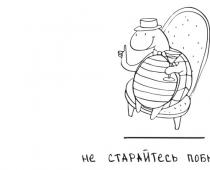Kloots
Anacharsis Cloots
1755 - 1794
Anacharsis Kloots is one of the active participants in the French Revolution, by birth a German baron from the Duchy of Cleves, which belonged to Prussia. His real name was Jean Baptiste; he took the name Anacharsis at the beginning of the revolution under the influence of a passion for classical antiquity. The idea of equality and brotherhood of peoples found in him a passionate follower. In 1790, on behalf of the “Committee of Foreigners,” he thanked the Constituent Assembly for the fight against tyranny. In the summer of 1791, he predicted the imminent establishment of “universal sovereignty” and the formation of “one single nation, including all of humanity.” The capital of the future world republic was to be Paris. In 1792, he was close to the Girondins, as a “speaker of the human race,” he demanded from the Legislative Assembly a war with Germany and donated a significant part of his fortune to the armament of France. After being elected to the Convention, he joined the Jacobin camp. Kloots called himself a personal enemy of Christ and every religion, and argued in his literary works that only the people can be the sovereign of the world, that only fools can believe in a supreme being, whose cult was proposed by Robespierre. In the summer of 1794, after the decision was made to exclude foreigners from the Convention, he was arrested and brought to trial. The indictment charged Kloots with the intention to restore the monarchy and even “to open the doors of prisons and send released criminals against the Convention, to destroy the republic by inciting civil war, slander, inciting riots, corrupting morals, undermining public principles, strangling the revolution by starvation...”. When Kloots was taken to the building of the Revolutionary Tribunal, the crowd saw him off shouting: “Prussian to the guillotine!” He answered: “Let it go to the guillotine, but admit it, citizens, it’s strange that a man who would have been burned in Rome, hanged in London, wheeled around in Vienna, will be guillotined in Paris, where the republic has triumphed.”
32 0
(1755 - 1794) - one of the active participants in the French Revolution, was a German by birth and came from the Duchy of Cleves, which belonged to Prussia. His real name was Jean Baptiste; he adopted the name Anacharsis at the beginning of the revolution, influenced by his passion for classical antiquity. The idea of equality and brotherhood of peoples found in him a passionate follower. In 1790, on behalf of the “Committee of Foreigners,” he thanked the Constituent Assembly for the fight against tyranny. As a “speaker of the human race,” he demanded war with Germany from the Legislative Assembly and donated a significant part of his fortune to the arms of France. In 1792 he was elected a member of the Convention. He called himself a personal enemy of Christ and all religion and argued in his literary works that only the people can be the sovereign of the world and that only fools can believe in a supreme being, whose cult was established by Robespierre. At the request of the latter, he was brought to trial in the case of the left faction of the Jacobins and executed in 1794 / T. 20/
Meanings in other dictionaries
Kloots Anacharsis
Kloots Anacharsis (real name Jean Baptiste) (24.6.1755, Gnadental Castle, near Cleves, ‒ 24.3.1794, Paris), a figure of the period of the Great French Revolution; philosopher-educator, publicist. Prussian baron. In 1776 he came to Paris and became close to encyclopedists; developed the ideas of pantheism. Since 1789, he was a member of the Jacobin Club. During the years of the revolution, he accepted French citizenship and was elected to the Convention (1792). G...
Klondike
A gold-bearing area in North-West Canada in the basin of the river of the same name, discovered in 1896. It caused a “gold rush” at the beginning of the 20th century. In a figurative meaning - a rich place, abundance. ...
Clontarf Norman Invasion of Ireland
Place of battle April 23 1014, when the Scandinavian invaders were defeated near Dublin by the Irish of Munster, Connacht, Ulster and Meath under the command of High King Brian Boroime. The Scandinavians lost 6,000 people, but Brian and his son fell in the battle. see Mortlak. ...
Kloots, Anacharsis
(1755 - 1794) - one of the active participants in the French Revolution, was a German by birth and came from the Duchy of Cleves, which belonged to Prussia. His real name was Jean Baptiste; he adopted the name Anacharsis at the beginning of the revolution, influenced by his passion for classical antiquity. The idea of equality and brotherhood of peoples found in him a passionate follower. In 1790, on behalf of the "Committee of Foreigners" he...
KLOOTS, Anacharsis
(real name Jean Baptiste du Val
du Grace) (Cloots, Anacharsis (Jean Baptist du Val du Grace), 1755–1794), Prussian baron, participant in the French Revolution, deputy of the Convention
Orator of the human race in the French National Assembly. // L'Orateur du genre humaine<…>.
Kloots about himself. ? Tulard, p. 654. “Orator of the human race” – cap. books by Kloots (Paris, 1791).
All peoples will wish to belong to the World Republic.
“Constitutional foundations of the Republic of the human race,” speech at the Convention on April 26. 1793
Zhores, 6:73
Here: “republic”<…>Universe." ? Jaures, 6:75.
“Let the nations merge into one nation!” (K-164).
Personal enemy of Jesus Christ.
Kloots about himself. ? les.guillotines.free.fr/cloots.htm.
From the book of Aphorisms author Ermishin OlegAnacharsis (VI century BC) legendary sage, Scythian by origin Anacharsis, when asked why he did not have children, said: out of love for children. Anacharsis, having visited the People's Assembly [in Athens], expressed surprise that the Hellenes say wise men, and ignorant people decide matters. In Hellas
From the book The Newest Book of Facts. Volume 3 [Physics, chemistry and technology. History and archaeology. Miscellaneous] authorWho was Anacharsis, considered by the ancients to be one of the “seven wise men”? Anacharsis (c. 638–559 BC) was the son of a Scythian king and a Greek woman. Living in Greece, he studied Greek customs, way of life and culture, and subjected them to critical reflection. The wit of his speeches entered
From the book Formula for Success. Leader's Handbook for Reaching the Top author Kondrashov Anatoly PavlovichANACHARSIS Anacharsis of Scythia (VI century BC) - a legendary sage, a Scythian from a royal family, studied Greek customs, way of life and culture, subjected them to critical reflection. * * * Safe ships are ships pulled ashore. Law - web: small
From the book Thoughts and Sayings of the Ancients, indicating the source authorANACHARSIS Anacharsis (VII century BC), legendary sage, Scythian by origin. Anacharsis, when asked why he doesn’t have children, said: out of love for children. (Stobeus, III, 120) (34a, p.19) Anacharsis, having visited the National Assembly (in Athens), expressed surprise that among the Hellenes the sages speak, and
From the book The best thoughts and sayings of the ancients in one volume author Dushenko Konstantin VasilievichAnacharsis Anacharsis (VII century BC), legendary sage, Scythian by origin. Anacharsis, when asked why he did not have children, said: out of love for children. (Stobeus, III, 120) Anacharsis, having visited the People's Assembly [in Athens], expressed surprise that among the Hellenes wise men speak, but deeds
From the book Big Dictionary of Quotes and Catchphrases author Dushenko Konstantin VasilievichANACHARSIS (VII century BC), legendary sage, Scythian by origin 199 Among the Hellenes, wise men speak, but ignorant people decide matters. About the People's Assembly in Athens, according to Plutarch (“Solon”, 5). ? Plut.,
From the book World History in sayings and quotes author Dushenko Konstantin VasilievichCLOOTS, Anacharsis (real name Jean Baptiste du Val du Grace) (Cloots, Anacharsis (Jean Baptist du Val du Grace), 1755–1794), Prussian baron, participant in the French Revolution, deputy of the Convention 638 Orator of the human race in the National Assembly of France. // L'Orateur du genre humaine<…>. Kloots about himself. ? Tulard, p. 654.
From the author's bookCLOOTS, Anacharsis (real name Jean Baptiste du Val du Grace) (Cloots, Anacharsis (Jean Baptist du Val du Grace), 1755–1794), Prussian baron, participant in the French Revolution, deputy of the Convention153 Orator of the human race in the National Assembly of France. // L'Orateur du genre humaine<…>.Kloots about himself. ? Tulard, p. 654.
(1755-06-24 )From 1793, Kloots advocated for violent “de-Christianization,” calling himself a personal enemy of Christ and any religion, and argued in his literary works that only the people can be masters of the world, that only fools can believe in a supreme being, whose cult Robespierre’s supporters tried to organize. Kloots supported the replacement of Catholicism with the cult of Reason, believing that the people were now ready to no longer believe “priestly tricks” and turn to “true morality.”
During the trial of Louis XVI, Kloots voted for the execution of the former king "in the name of humanity."
Arrest and death
In December 1793 he was expelled from the Jacobin Club, and in the spring of 1794, after the decision was made to exclude foreigners from the Convention, he was arrested and brought to trial. When Kloots was taken to the building of the Revolutionary Tribunal, the crowd saw him off shouting: “Prussian to the guillotine!” He answered: “Let it go to the guillotine, but admit it, citizens, it’s strange that a man who would have been burned in Rome, hanged in London, wheeled around in Vienna, will be guillotined in Paris, where the republic has triumphed.” The indictment accused him of intending to restore the monarchy and even “ open the prison doors and send released criminals against the Convention, destroy the republic by inciting civil war, slander, inciting riots, corrupting morals, undermining public principles, strangling the revolution by starvation».
Anacharsis Kloots, “a personal enemy of Jehovah,” who also died very courageously, on his last night was most upset by the fact that some of the condemned “retained faith in the immortality of the soul,” and tried in every possible way to dissuade them: there will be no immortality, tomorrow from There will be absolutely nothing left of us.
Kloots was executed along with
Anacharsis Kloots
Anacharsis Cloots
Anacharsis Kloots (1755-1794) - one of the active participants in the French Revolution, by birth a German baron from the Duchy of Cleves, which belonged to Prussia. His real name was Jean Baptiste; he took the name Anacharsis at the beginning of the revolution under the influence of a passion for classical antiquity. The idea of equality and brotherhood of peoples found in him a passionate follower. In 1790, on behalf of the “Committee of Foreigners,” he thanked the Constituent Assembly for the fight against tyranny. In the summer of 1791, he predicted the imminent establishment of “universal sovereignty” and the formation of “one single nation, including all of humanity.” The capital of the future world republic was to be Paris. In 1792, he was close to the Girondins, as a “speaker of the human race” he demanded from the Legislative Assembly a war with Germany and donated a significant part of his fortune to the armament of France. After being elected to the Convention, he joined the Jacobin camp. Kloots called himself a personal enemy of Christ and every religion, and argued in his literary works that only the people can be the sovereign of the world, that only fools can believe in a supreme being, whose cult was proposed by Robespierre. In the summer of 1794, after the decision was made to exclude foreigners from the Convention, he was arrested and brought to trial. The indictment charged Kloots with the intention to restore the monarchy and even “to open the doors of prisons and send released criminals against the Convention, to destroy the republic by inciting civil war, slander, inciting riots, corrupting morals, undermining public principles, strangling the revolution by starvation...”. When Kloots was taken to the building of the Revolutionary Tribunal, the crowd saw him off shouting: “Prussian to the guillotine!” He answered: “Let it go to the guillotine, but admit it, citizens, it’s strange that a man who would have been burned in Rome, hanged in London, wheeled around in Vienna, will be guillotined in Paris, where the republic has triumphed.”
Reprinted from the site
The French Revolution
http://liberte.da.ru/
Cloots, Anacharsis (real name - Jean Baptiste) (24.VI.1755 - 24.III.1794) - French politician, participant in the French bourgeois revolution of the late 18th century, educational philosopher and publicist. Dutch by birth, Prussian baron. Kloots promoted pantheism, a philosophical doctrine that identifies God with nature. Since the beginning of the French Revolution, he settled in Paris, becoming close to the encyclopedists. In 1792 he was elected to the Convention. An opponent of Catholicism, Kloots advocated forced de-Christianization in 1793. He demanded the continuation of the war with the anti-French coalition until the creation of a world union of republics. The implementation of such an adventurous cosmopolitan program by Kloots could be detrimental to the interests of revolutionary France. Kloots' program turned against him M. Robespierre and many others Jacobins, who sought to consolidate the gains of the revolution in France and ensure peace and recognition of the European powers. In December 1793, Kloots was expelled from the Jacobin Club and then removed from the Convention. Put on trial by the Revolutionary Tribunal, Kloots was executed along with a group of left-wing Jacobins - the so-called Hébertists.
Soviet historical encyclopedia. In 16 volumes. - M.: Soviet Encyclopedia. 1973-1982. Volume 7. KARAKEEV - KOSHAKER. 1965.
Read further:
The French Revolution (chronological table)
Literature:
Engels F., (Letter) to V. Adler dated December 4. 1889, K. Marx and F. Engels, Soch., vol. 28, (L.), 1940;
Avenel G., Anacharsis Cloots, l "orateur du genre humain, t. 1-2, P., 1865.
- In contact with 0
- Google+ 0
- OK 0
- Facebook 0








